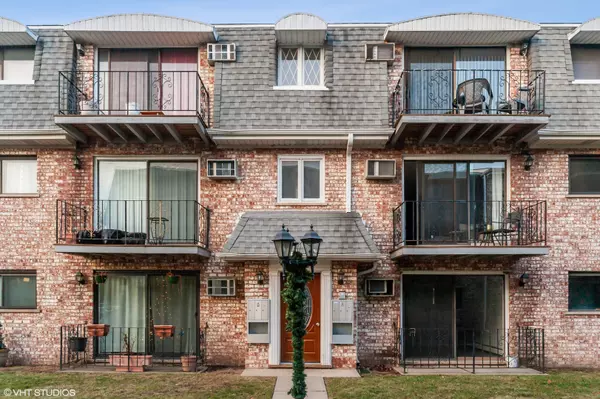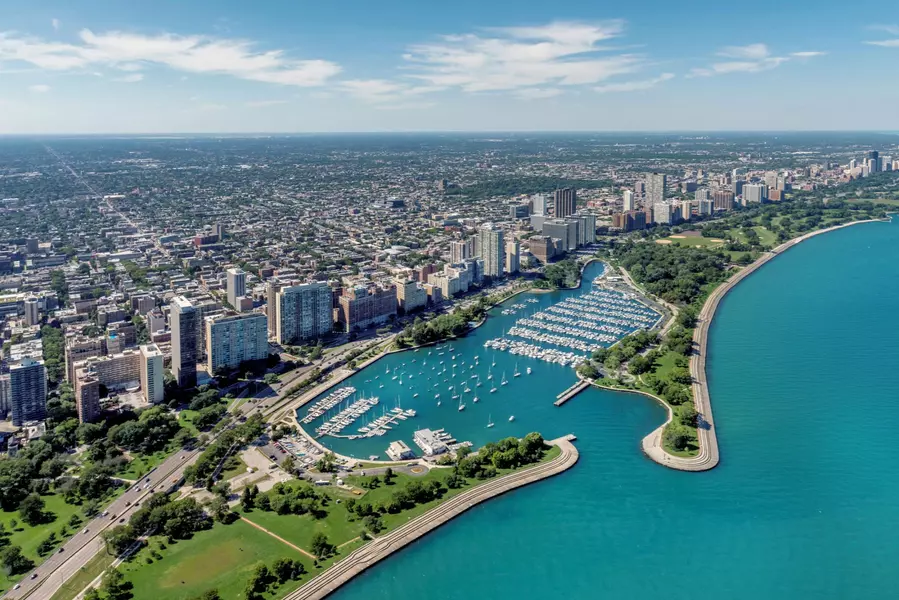How Trump's Presidency Could Impact Real Estate
As a real estate agent here in Chicago, I know that shifts in the housing market can profoundly impact buyers, sellers, and renters—especially with the new dynamics of a presidential term. With Donald Trump’s return to office, many of us are closely watching how his policies might influence real estate, particularly given the current shortage of affordable housing. Let's talk about Trump's concepts.
Expanding Supply with Federal Land
Most of what we know about Trump’s housing priorities comes from a speech he gave to the Economic Club of New York in early September, where he outlined plans to address the housing shortage. Trump proposed using federal land to increase housing supply and ease affordability issues, stating, “We will open up portions of federal land for large-scale housing construction…These zones will be ultra-low tax and ultra-low regulations—one of the great small business job creation programs.” By boosting the supply of homes, this approach could help stabilize prices, potentially providing relief for first-time buyers. Trump’s focus on cutting regulations could also make construction projects simpler and more cost-effective. However, since changes like these take time, it’s essential to stay informed about how these policies might unfold and impact us locally.
Reducing the Corporate Tax Rate
Another priority Trump outlined is lowering the corporate tax rate from 21% to 15% for companies producing goods in the U.S., with the idea that this could stimulate economic growth and support housing. According to Mark Hamrick, Washington bureau chief and senior economic analyst for Bankrate, “A lower corporate tax rate could stimulate housing activity, boost investment, and potentially lead to increased housing market activity.” Hamrick also noted, “Among the potential ripple effects could be a rise in construction, more supply, and lower home prices,” which could benefit buyers facing high prices. Additionally, Trump mentioned wanting to address supply chain challenges and ease regulations on homebuilders, though details on these plans are still pending.
Mass Deportation
Trump’s proposed “mass deportation” plan could significantly impact the housing market by reducing the labor force available for construction. Trump promised to carry out “the largest deportation operation in American history,” which could eliminate 1 to 2 million undocumented workers in construction, making up 10% to 19% of the workforce. This includes many key trades such as plasterers and roofers, with over a third of these workers being undocumented, according to the American Immigration Council.
The National Immigration Forum also warns that the construction industry is already facing a labor shortage, needing over half a million new workers in 2024 to meet demand. Ralph McLaughlin, senior economist at Realtor.com, cautioned that reducing immigration could “severely hurt the labor supply needed for new homebuilding,” which could slow construction and worsen the affordable housing crisis in the short term.
While some argue that removing undocumented workers might lower housing competition and costs, studies indicate that the increase in immigration is not directly tied to the rise in home prices and rents. According to data from the Joint Center for Housing Studies of Harvard University, home prices began climbing in 2020 and 2021, before the spike in immigration, and rents also saw a sharp increase in 2021. In fact, after immigration surged in 2022, the growth rate of home prices slowed significantly, and by 2023, rent growth stalled entirely. This suggests that the surge in immigration does not correlate with the sharp rise in housing costs, as some might assume.
Project 2025
Trump’s housing policies for a second term are largely influenced by Project 2025, a proposal released in 2023 by The Heritage Foundation, a conservative group. One of the main parts, written by former HUD Secretary Ben Carson, talks about dismantling the Fair Housing Act in several ways.
One example it suggests is removing the Affirmatively Furthering Fair Housing (AFFH) rule. The AFFH rule requires cities and local governments that receive federal funding for housing programs to actively work on identifying and removing barriers to fair housing. This includes addressing issues like discrimination or bias that might prevent certain groups of people from having equal access to housing.
In addition to reversing those changes, Carson advocates ending policies that address racial bias in home appraisals and eliminating the use of “disparate impact,” which looks at unintentional discrimination in housing. Project 2025 also proposes ending programs like the Housing Trust Fund and Housing First, which are designed to help provide housing for low-income and homeless individuals.
The plan also questions the Consumer Financial Protection Bureau (CFPB), even though the Supreme Court ruled in 2024 that it is in fact legal. Project 2025 suggests abolishing rules that help protect small businesses.
Lastly, the proposal suggests that HUD’s top positions should be political, meaning leaders could be replaced based on the party in power. This goes along with a 2020 order by Trump to reduce protections for federal workers, which President Biden reversed in 2021.
Interest Rates
In his speech at the Economic Club of New York, Trump highlighted reducing mortgage rates as a key priority, saying, “We’re going to get them back down to, we think, 3%, maybe even lower than that, saving the average homebuyer thousands of dollars per year.” However, mortgage rates are set by the Federal Reserve, not the president. Trump has expressed frustration with this, stating, “I feel the president should have at least a say in there.”
Since September of 2024, mortgage rates have risen, even after the Fed cut its benchmark rate. On the day after the election, November 6th, yields on the 10-year Treasury rose to 4.44%, signaling higher mortgage rates in the near future.
Investors might be taking Trump’s statements seriously, anticipating that his victory would lead to higher tariffs, immigrant deportations, and tax cuts funded by the deficit, all within a full-employment economy. These factors could contribute to increased inflation and more government borrowing, according to Moody's Analytics Chief Economist Mark Zandi. As of November 5th, the specifics of Trump’s housing policy are still being clarified.
Looking Ahead: Navigating the Changes as Your Real Estate Advisor
With many policies still taking shape, staying updated on these developments will be essential for us as real estate professionals. If Trump’s actions affect mortgage rates, housing inventory, or regulations, it’s our role to help clients understand how these shifts might impact their buying or selling decisions. I’ll be closely watching these potential impacts so I can provide you with the best insights to help you navigate the market.
 Pending
Pending
 Active
Active
 New
New
 Active
Active
 Active
Active
 Active
Active









